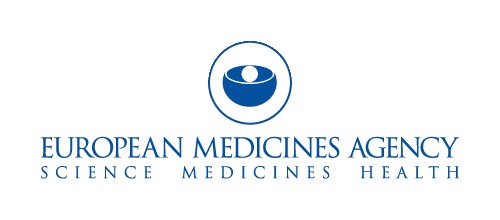Nine new medicines recommended for approval.
EMA’s human medicines committee (CHMP) recommended nine medicines for approval at its September 2021 meeting.
The Committee adopted a positive opinion for Artesunate Amivas* (artesunate), for the initial treatment of severe malaria in adults and children. This medicine has an orphan designation because malaria has a low prevalence in the European Union.
The CHMP recommended granting a marketing authorisation for Brukinsa* (zanubrutinib), for the treatment of Waldenström’s macroglobulinaemia.
The Committee adopted a positive opinion, recommending the granting of a conditional marketing authorisation for Gavreto (pralsetinib) for the treatment of non-small cell lung cancer.
The CHMP recommended granting a marketing authorisation for Qinlock* (ripretinib) for the treatment of advanced gastrointestinal stromal tumour (GIST).
Vumerity (diroximel fumarate) was granted a positive opinion for the treatment of adult patients with relapsing remitting multiple sclerosis.
Two biosimilar medicines were recommended for approval by the Committee: Hukyndra and Libmyris (both containing adalimumab) for the treatment of inflammatory auto-immune disorders such as arthritis psoriasis, inflammatory bowel disease or uveitis. A biosimilar medicine is a biological medicine that is highly similar to another biological medicine that is already authorised for use.
Two generic medicines received a positive opinion from the Committee: Sugammadex Mylan (sugammadex) intended for the reversal of induced neuromuscular blockade and Rivaroxaban Mylan (rivaroxaban), an anti-coagulant intended for the prevention and treatment of atherothrombotic and venous thromboembolic events in certain at-risk patients.
Negative opinion on a new medicine
The CHMP recommended the refusal of a marketing authorisation for Raylumis (tanezumab). Raylumis was intended for the treatment of pain associated with osteoarthritis.
Recommendations on extensions of therapeutic indication for nine medicines
The Committee recommended granting three extensions of indication for Nucala (mepolizumab), including the extension for the treatment of eosinophilic granulomatosis with polyangiitis.
Other extensions of indication recommended by the Committee were for Firmagon, Jyseleca, Keytruda, Noxafil, Opdivo, Segluromet, Steglatro and Zepatier.
COVID-19: CHMP concludes Article 5(3) review on Vaxzevria
The CHMP has concluded its further analysis of data on the risk of unusual blood clots linked to low levels of blood platelets (thrombosis with thrombocytopenia syndrome, TTS) and on the use of a second dose of Vaxzevria, reinforcing its interim opinion of April 2021. A scientific opinion on these points was requested by the European Commission following the initial reports of TTS associated with the vaccine. EMA analysed all the available data, including the latest TTS data from spontaneous reports in EudraVigilance, detailed vaccination data from Member States and an additional commissioned study of the risk of blood clots that was reviewed in detail by EMA’s safety committee (PRAC).
The evidence did not allow EMA to identify particular risk factors that make TTS more likely. Although spontaneous reports when put in relation to the exposure have suggested that the risk may be higher in women and in younger adults, and lower after the second compared to the first dose, the limitations of the way the data is collected mean that none of these differences could be confirmed.
EMA’s recommendation remains to continue giving a second dose of Vaxzevria between 4 and 12 weeks after the first, in line with the product information. There is no evidence that delaying the second dose has any influence on the risk of TTS. Where a second dose of Vaxzevria is not given, no definitive recommendations on the use of a different vaccine for the second dose can be made at present (see EMA/ECDC Joint Statement).
The CHMP’s detailed assessment report will be published shortly.
Re-examinations of recommendations
The applicant for Nouryant (istradefylline) has requested a re-examination of the Committee’s opinion for this medicine adopted at its July 2021 meeting. Upon receipt of the grounds of the request, the Agency will re-examine its opinion and issue a final recommendation.
The applicant for Nexviadyme (avalglucosidase alfa) has requested a re-examination of the Committee’s opinion for this medicine adopted at its July 2021 meeting. Upon receipt of the grounds of the request, the Agency will re-examine its opinion and issue a final recommendation.
Withdrawal of applications
Applications for an initial marketing authorisation for four medicines were withdrawn: Livmarli (maralixibat) for the treatment of progressive familial intrahepatic cholestasis type 2 (PFIC2) in patients 1 year of age and older; Oportuzumab monatox DLRC Pharma Services (oportuzumab monatox) for the treatment and prevention of recurrence of cancer of the bladder and the prevention of recurrence of papillary tumours; Sildenafil FGK (sildenafil) for the treatment of erectile dysfunction in adult men; Teriparatide Cinnagen (teriparatide) for the treatment osteoporosis.
CHMP concludes assessment of presence of a nitrosamine impurity in Champix
The CHMP has concluded its analysis on the presence of impurity N-nitroso-varenicline in Champix at levels above those considered acceptable for EU medicines. Champix should conform to a limit of impurity calculated based on compound-specific ICH M7 principles for a lifetime exposure. The company will now be asked to vary its licence to comply with the set requirements. As a precautionary measure the company that markets Champix had already recalled several batches in June 2021 and paused distribution. The previously circulated direct healthcare professional communication (DHPC) is being revised informing healthcare professionals that further shortages are anticipated. The updated DHPC will be published in the coming days on the following page. As part of the assessment, CHMP considered the criticality of Champix in the context of its current therapeutic use and the availability of alternative treatment options. The CHMP concluded that higher impurity limits were not acceptable as the product was not critical and its absence from the EU market would not create a concern in terms of public health. Patients should not stop taking Champix without first consulting their healthcare professional and talk to them if they have any questions or concerns.
Re-election of Harald Enzmann as CHMP chair
The CHMP re-elected Harald Enzmann as its chair for a second three-year term, starting in September 2021.
—————
*This product was designated as an orphan medicine during its development. Orphan designations are reviewed by EMA’s Committee for Orphan Medicinal Products (COMP) at the time of approval to determine whether the information available to date allows maintaining the medicine’s orphan status and granting the medicine ten years of market exclusivity.
ema.europa.eu








